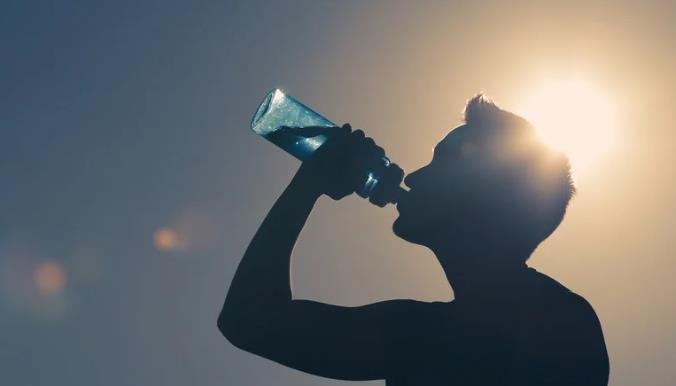Hydration is a cornerstone of good health, affecting everything from physical performance to cognitive function. Yet, many of us find ourselves wondering just how much water is enough. Should we strictly adhere to the “8×8” rule, or are our bodies telling us something different? In this blog, we’ll explore how many water bottles you should drink each day, tailored to your unique lifestyle and body needs. From understanding the basics of hydration to adjusting for varying activity levels and weather conditions, we’ll provide you with practical tips and insights to help you maintain optimal hydration every day. Join us as we dive into the simple, yet vital, world of drinking water.
Health Benefits Of Water
Water is essential for maintaining good health and well-being. It plays a crucial role in various bodily functions, from regulating body temperature to aiding digestion. Here are some of the key health benefits of water:
| Health Benefit | Description |
|---|---|
| Lubricates Joints | Water helps lubricate joints, reducing the risk of joint pain. |
| Promotes Regular Bowel Movements | Adequate water intake can help maintain regular bowel movements. |
| Regulates Body Temperature | Especially crucial in hot weather, water helps regulate body temperature. |
| Aids in Saliva and Mucus Production | Water is essential for the production of saliva and mucus in the body. |
| Supports Oxygen Transport in the Blood | Water assists the blood in carrying oxygen throughout the body. |
| Contributes to Healthy Skin | Proper hydration can contribute to healthy, youthful-looking skin. |
| Supports Brain Health | Staying hydrated is important for overall brain health and function. |
| Regulates Blood Pressure | Drinking enough water helps regulate blood pressure levels. |
| Flushes Out Waste Products | Water aids in the removal of waste from the body through sweat, urine, and bowel movements. |
| Prevents Overeating and Aids in Weight Loss | Drinking water before meals can help prevent overeating and support weight loss efforts. |
| Reduces Risk of Illness from Alcohol | Adequate water intake can reduce the risk of feeling unwell after consuming alcohol. |
| Enhances Athletic Performance | Proper hydration is crucial for optimal athletic performance. |
How Many Water Bottles Should I Drink a Day?
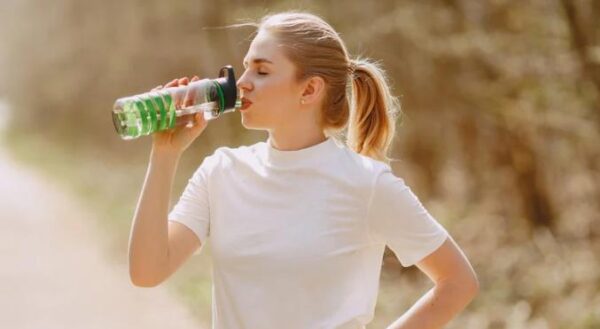
Determining how many water bottles you should drink each day is essential for maintaining optimal hydration, which is crucial for your overall health. The standard advice often cited is the “8×8” rule, which suggests drinking eight 8-ounce glasses of water per day. However, when translated into water bottles, this amount can vary depending on the size of the bottle. For example, if you use 16-ounce water bottles, this rule would mean you should drink about four bottles per day.
Key Considerations for Daily Water Intake:
- Bottle Size: The size of your water bottle affects how many you should drink. Common bottle sizes include 12 ounces, 16 ounces, 20 ounces, and 32 ounces. Knowing the size of your bottle can help you calculate your total daily water intake more accurately.
- Individual Needs: Each person’s hydration needs can vary based on several factors. These include age, weight, sex, physical activity level, and overall health. For instance, people who are more active or live in hotter climates may need to drink more water.
- Health Benefits: Adequate hydration supports various bodily functions, including maintaining the health of the urinary and digestive systems, keeping the skin healthy, and transporting nutrients and oxygen to cells.
Calculating Your Needs:
To personalize your hydration needs more precisely, consider starting with the baseline of four 16-ounce bottles a day and adjusting as needed based on your body’s responses. If you find yourself frequently thirsty, or if your urine is often dark yellow, it’s a sign that you may need to increase your water intake. Conversely, if you seldom feel thirsty and your urine is light or clear, your current intake might be adequate.
Understanding how many water bottles you should drink a day is not a one-size-fits-all answer but a personal one that can change based on your daily activities and environmental conditions. Listening to your body and making adjustments based on your activities and health conditions will help you stay hydrated and healthy.
Factors That Influence How Many Water Bottles You Should Drink a Day
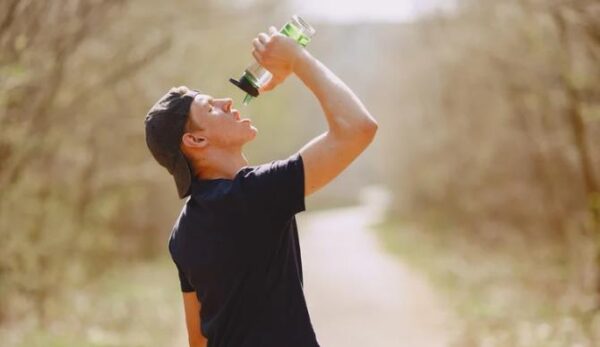
The number of water bottles you should drink each day can vary greatly depending on several individual and environmental factors. Understanding these can help you tailor your hydration needs more effectively, ensuring that you consume the right amount of water for your body.
Individual Health Factors
- Body Weight and Composition: Generally, people who weigh more or have more muscle mass require more water. A common guideline is to drink between half an ounce and an ounce of water for each pound you weigh, each day.
- Age and Sex: Older adults may need more water as their bodies can retain less fluid and sense thirst less effectively. Men typically require more water than women due to larger average body sizes and differences in composition.
Environmental Factors
- Climate: Hot or humid weather increases sweat production, which in turn increases hydration needs. Those living in hot climates or experiencing summer weather should consider increasing their water intake.
- Altitude: Higher altitudes can lead to increased water loss through respiration. If you live above 8,500 feet, you might need to drink more water to counteract the increased rate of dehydration.
Lifestyle and Activity Levels
- Physical Activity: The more active you are, the more water you need. If you exercise regularly or engage in any strenuous activities, you should drink extra water to compensate for fluid loss from sweating.
- Diet: Certain foods, especially those high in sodium, protein, or sugar, can increase your hydration needs. Conversely, diets rich in fruits and vegetables, which contain a lot of water, can contribute to your hydration.
Health Conditions
- Medical Conditions: Some health issues, such as diabetes, cystic fibrosis, or kidney stones, require individuals to drink more water. Additionally, certain medications, including water pills or diuretics, can affect fluid levels in the body.
- Pregnancy and Breastfeeding: Women who are pregnant or breastfeeding need additional fluids to stay hydrated and support the health of their baby and themselves.
By considering these factors, you can better estimate how many water bottles you should drink each day. Remember, these are guidelines, and your personal needs may vary. Monitoring your body’s responses to different hydration levels can help you adjust your water intake to find what works best for you.
Calculating How Many Water Bottles to Drink During Physical Activity
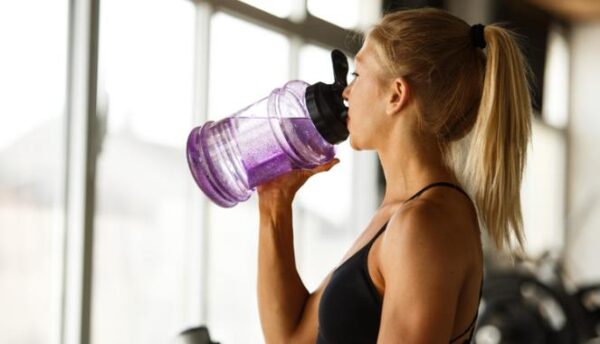
Physical activity significantly increases your body’s hydration requirements due to elevated sweat loss and higher metabolic rates. Whether you are an athlete or engage in regular exercise, understanding how to adjust your water intake during physical activities is crucial for maintaining optimal performance and health.
Guidelines for Hydration Before, During, and After Exercise:
- Pre-Exercise Hydration:
- Hydrate Well Before Starting: About two to three hours before beginning your workout, aim to drink approximately 17 to 20 ounces of water. This initial hydration helps prepare your body for the increased demands of physical activity.
- Hydration During Exercise:
- Drink Regularly Throughout Activity: It’s recommended to consume about 7 to 10 ounces of water every 10 to 20 minutes during exercise to compensate for fluid loss through sweat. Keeping a water bottle handy and taking frequent sips can make this easier.
- Post-Exercise Rehydration:
- Compensate for Lost Fluids: After completing your exercise, it’s important to replenish the fluids lost. A good rule of thumb is to drink 16 to 24 ounces of water for every pound of body weight lost during the activity. Weighing yourself before and after exercise can help you calculate this loss more accurately.
Calculating Water Bottle Needs Based on Bottle Size:
- Determining Your Bottle Size: First, identify the volume of your water bottle (common sizes are 12, 16, 20, or 32 ounces). This will help in calculating how many bottles you need.
- Example Calculation for a Workout: If you’re using a 16-ounce water bottle and plan to exercise for an hour, you might aim to drink one bottle (16 ounces) 30 minutes before starting, and continue drinking half a bottle (approximately 8 ounces) every 20 minutes during the workout. Post-workout, you would then drink one to two bottles (16 to 32 ounces) depending on the intensity and your sweat loss.
Adjusting Intake Based on Exercise Intensity and Environment:
- Intensity of Exercise: Higher intensity or longer-duration workouts will likely increase sweat production and therefore require more water.
- Environmental Conditions: Exercising in hot or humid conditions also increases water loss through sweat, necessitating more frequent hydration.
Monitoring your body’s response to exercise, such as keeping an eye on signs of dehydration (e.g., increased thirst, dry mouth, fatigue) or symptoms of overhydration (e.g., bloating, nausea), can guide further adjustments in your hydration practices. Adapting your water intake to match the specific needs of your physical activity level ensures that you stay properly hydrated, supporting your health and enhancing your performance.
How Many Water Bottles Should You Drink in Different Weathers?
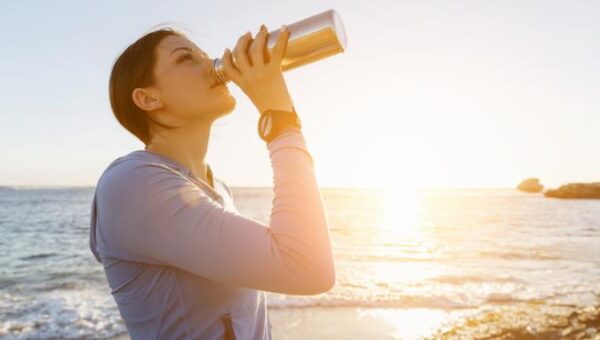
Weather conditions play a significant role in determining how much water you should drink. Variations in temperature and humidity can affect the body’s hydration needs by altering the rate at which you lose water through sweat and respiration. Here’s how you can adjust your water intake in different weather scenarios:
Hot and Humid Weather
- Increased Hydration Needs: In hot and humid conditions, your body sweats more to cool down, leading to increased fluid loss. To compensate for this loss, you may need to increase your water intake significantly.
- Guideline: It’s advisable to add an extra 12 to 16 ounces of water to your normal intake for every 30 minutes of outdoor activity in hot weather. Carry a water bottle with you and take frequent sips to stay hydrated.
Cold Weather
- Deceptive Hydration Needs: Cold weather can reduce the body’s thirst response by up to 40%, making you less likely to feel thirsty even when your body needs fluids. Despite this, dehydration risks remain because of increased respiratory fluid loss and the energy expended in keeping warm.
- Guideline: Maintain regular hydration habits as you would in moderate weather. If you’re engaging in winter sports or spending extended periods outside, keep a water bottle handy and drink regularly, even if you don’t feel thirsty.
Dry or Arid Weather
- Rapid Moisture Evaporation: Dry conditions can lead to quicker evaporation of sweat, which might make you underestimate the amount of fluid you’re losing. This can increase the risk of dehydration.
- Guideline: Increase your standard water intake by drinking an additional 8 to 10 ounces of water for every hour you spend outdoors in dry conditions.
Monitoring Your Hydration: Are You Drinking Enough Water Bottles a Day?
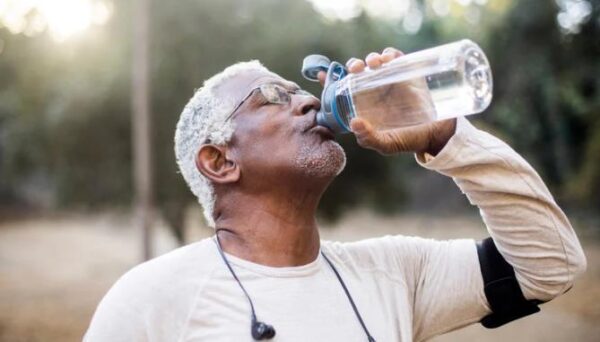
Monitoring your hydration effectively is essential to ensure that you are drinking an adequate amount of water daily. Hydration is crucial for various bodily functions, including regulating body temperature, maintaining blood pressure, and promoting cell health. Here’s how to determine if you’re consuming enough water bottles each day:
Key Indicators of Proper Hydration
- Urine Color: This is a quick and effective way to gauge your hydration level. Pale yellow urine usually suggests good hydration, whereas a dark yellow or amber color indicates dehydration. Very clear urine could mean you are overhydrating.
- Thirst: If you often feel thirsty, your body is signaling that it needs more fluids. Responding promptly to thirst is a simple way to maintain adequate hydration.
Tracking Your Water Bottle Intake
- Count Your Bottles: Knowing the size of your water bottle (e.g., 16 ounces, 20 ounces) can help you calculate your total fluid intake in a tangible way. Tracking how many bottles you drink throughout the day can ensure you meet your hydration goals.
- Use a Hydration App: Many smartphone apps are designed to track how much water you drink. These apps can also remind you to drink water at regular intervals.
Physical and Behavioral Signs of Adequate Hydration
- Physical Performance: Adequate hydration can help maintain your endurance and strength levels, reducing fatigue during physical activities.
- Cognitive Function: Proper hydration is essential for maintaining concentration and alertness. If you’re well-hydrated, you should be able to think clearly and stay focused.
Adjustments Based on Lifestyle
- Activity Level: If you engage in exercise or any physically demanding activities, you’ll need to drink additional water to compensate for the loss through sweat.
- Environmental Factors: Hot or humid weather increases the body’s need for water due to higher sweat loss. Similarly, heated indoor environments during winter can also dehydrate your skin and respiratory system, requiring more fluid intake.
Regular Self-Assessment
- Check for Signs of Overhydration or Underhydration: While dehydration is a common concern, drinking too much water (overhydration) can lead to water intoxication, which is harmful and potentially life-threatening. Balance is key.
- Health Checks: Regular medical check-ups should include discussions about your hydration, especially if you have health conditions affected by water intake, such as kidney stones or certain heart diseases.
By integrating these practices into your daily routine, you can better monitor whether you’re drinking enough water bottles each day. This proactive approach will help you maintain optimal hydration, supporting overall health and well-being.
Is Drinking Water the Only Way to Get the Water Content You Need?
No, drinking water is not the only way to get the required water content for your body. While plain water is the most straightforward source of hydration, you can also meet your daily fluid needs through various foods and beverages. Many fruits and vegetables, such as cucumbers, tomatoes, watermelons, strawberries, and oranges, are over 90% water. Consuming these can significantly contribute to your hydration levels. Besides water, other beverages like milk, tea, and juice can also help you stay hydrated, though it’s essential to be mindful of the sugar content in these drinks. Soups and broth-based meals are excellent sources of fluids, providing both hydration and essential nutrients. Dairy products like yogurt and milk, as well as herbal teas, can also be part of your daily hydration routine.
According to the Mayo Clinic, about 20% of our daily fluid intake usually comes from food, and the rest from drinks. They emphasize the importance of consuming a balanced diet with high-water-content foods alongside drinking water to maintain adequate hydration levels. Additionally, the National Academies of Sciences, Engineering, and Medicine recommend an adequate daily fluid intake of about 3.7 liters (15.5 cups) for men and 2.7 liters (11.5 cups) for women, including all beverages and moisture from foods. By incorporating a variety of hydrating foods and beverages into your diet, you can ensure that your body gets the water it needs to function optimally.
Water’s Impact on Weight Loss
Drinking plenty of water can aid in weight loss when combined with a healthy diet and regular activity. Studies suggest that having a full glass of water before meals can reduce calorie intake, potentially leading to significant weight loss over time. Additionally, staying hydrated can help prevent water retention, reducing bloating and making you look slimmer. Drinking water when you feel hungry can also help distinguish between hunger and thirst, preventing unnecessary snacking.
Signs You’re Not Drinking Enough Water
Your body provides several clues if you’re not consuming enough water. The most common indicator is a dry mouth, often the first sign of mild dehydration. Additionally, a headache can signal inadequate hydration.
During intense exercise or while breastfeeding, the signs of dehydration may become more pronounced if you’re not drinking enough water.
Other signs that you may be lacking sufficient water intake include dark urine, a lack of sweat despite being in a hot environment or engaging in strenuous activity, and cravings for salty foods.
Effect of Water Intake on Energy Levels and Brain Function
Maintaining adequate hydration levels throughout the day is crucial for sustaining energy levels and optimal brain function. Research suggests that even mild dehydration can lead to noticeable effects on mood, concentration, and cognitive abilities.
An older study involving females revealed that a fluid loss of 1.36 percent after exercise resulted in impaired mood and concentration, along with an increased frequency of headaches (Popkin et al., 2010).
Similarly, a more recent study conducted in China observed 12 male university students and found that abstaining from water consumption for 36 hours led to noticeable effects on fatigue, attention, focus, reaction speed, and short-term memory (Wang et al., 2016).
Furthermore, dehydration can have a significant impact on physical performance. A clinical study on older, healthy men reported that a mere 1 percent loss of body water resulted in reduced muscle strength, power, and endurance (Judelson et al., 2007).
Even though a 1 percent loss of body weight may not seem substantial, it represents a significant amount of water loss, typically occurring when individuals are sweating excessively or in hot environments without adequate fluid intake.
Related Articles:
- How Much Water Should I Drink While Taking Water Pills?
- How Much Water Should I Drink When Taking Spironolactone?
- How Much Fluid Should a Student Drink for Every Pound Lost During Exercise?
FAQs on how much water a person should drink
Is 4 bottles of water a day enough?
Whether 4 bottles of water a day is enough depends on the size of the bottles and your personal hydration needs. If each bottle is 16 ounces, this amounts to 64 ounces a day, which can be adequate for some people. However, factors such as your body weight, activity level, and environmental conditions might require more or less.
How many water bottles a day is healthy?
The number of water bottles that is healthy to drink each day varies based on individual factors like health, activity level, and the climate you live in. A general guideline is to aim for about eight 8-ounce glasses of water a day, equivalent to about four 16-ounce water bottles. Adjust this number based on your personal needs and lifestyle.
Is it good to drink 12 bottles of water a day?
Drinking 12 bottles of water a day can be excessive for most people, unless the bottles are very small or you have specific circumstances such as extreme physical activity or hot weather conditions. If each bottle is 16 ounces, this totals 192 ounces, which might lead to overhydration for some individuals. It’s important to listen to your body and adjust your intake accordingly.
How many 16 oz bottles of water should you drink a day?
Drinking about four 16-ounce bottles of water a day (64 ounces total) aligns with the general health recommendations of approximately 8 glasses of water daily. However, this number should be adjusted based on personal factors like your health, how active you are, and your environment.

